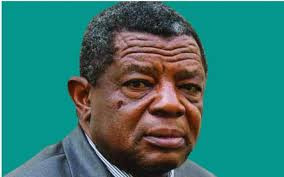
WAR veteran and expelled Zanu PF central committee member Blessed Geza has called for protests today meant to oust President Emmerson Mnangagwa from power.
The signal, Geza said, was given following the torching of cars near the offices or premises owned by banker John Mangudya, businessman Kudakwashe Tagwirei and tenderpreneur Wicknell Chivayo. Geza accused the trio of being a cabal around the President.
Since Friday, tension has been rising, resulting in heavy deployment of police in high-density suburbs, underlining the seriousness the law enforcement agencies are attaching to this issue, although government officials are claiming it is business as usual.
A series of statements by the police and the Home Affairs ministry were issued over the weekend to allay the fears of the public.
Home Affairs minister Kazembe Kazembe said the country's security services firmly stood on the side of law and order and would not hesitate to take decisive action.
He said the government had a constitutional mandate to safeguard the security and territorial integrity of this country and security services will not apologise or renege on fulfilling this.
How have we arrived at this stage as a country?
At the heart of the protest is the contradiction in the governing Zanu PF, with a clique campaigning for the extension of Mnangagwa’s term by two years when his constitutionally-mandated two terms end in 2028. Mnangagwa has publicly stated that he will leave office when his tenure ends.
- Number of war vets needing limbs declines
- Number of war vets needing limbs declines
- Mr President, you missed the opportunity to be the veritable voice of conscience
- War vet wings 'clipped': Analysts
Keep Reading
This has faced pushback from a section of the party, which believes in the dictum — leadership is a relay, in which one is compelled to pass on the baton.
Just like in 2017, the ructions in Zanu PF come amid a deteriorating economy that has impoverished many citizens, despite claims by authorities that the economy is on a rebound this year after being slowed by an El Nino-induced drought last year.
It is becoming tough for formal businesses as they need to navigate high taxes, declining sales, rising informalisation and high interest rates.
The central bank maintained the bank policy rate at 35% per annum, which is on the high side.
Just like the 2017 wave, today’s protest comes amid rising corruption in the economy, according to the latest statistics from Transparency International.
According to the results of the 2024 Corruption Perception Index (CPI) released in February, Zimbabwe scored 21 points out of a possible 100, down from 24 points in 2023, highlighting a decline in transparency and accountability.
Zimbabwe performed below the sub-Saharan average score of 33 and the global average CPI of 43.
The highest Zimbabwe has scored since 2016 is 24.
However, that push comes at a time when there is discontent over a deteriorating economy, rising corruption and allegations of tribalism.
On a normal day this should have been viewed as an intra-Zanu PF fight. However, the deteriorating economy, rising corruption and the widening gap between the haves and have-nots have escalated it to a national issue.
Zanu PF must put its house in order. This avoids unwanted violence and improves the country’s risk profile.
The second republic must take responsibility for the ramifications of today’s protest.






